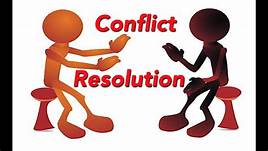“L’ LOVE Either way, Christ’s love controls us. Since we believe that Christ died for…

ARTICLE 2- BOUNDARIES
WHAT ARE BOUNDARIES?
“Do unto others as you would have them do unto you” (Matt 7:12)
Just as property lines, Boundaries in relationships are simply guidelines and rules we set up to inform others on how to treat us. Setting healthy boundaries is important as it helps preserve our sanity and space.
BOUNDARIES ARE NOT BARRIERS
Do you see boundaries as barriers?
Boundaries apply to any kind of relationship you have – whether with a friend, family member, partner, or anyone else in your life.
If boundaries are understood well, they are clearly not barriers. Boundaries in relationships help each person figure out where they start and end, as well as where the other begins and ends. In short, boundaries help you define what you are comfortable with and how you would like to be treated by others. Boundaries make for healthy and safe relationships
For instance, if you have boundaries on your faith and beliefs then it’s important you communicate this to people you relate with. This will ultimately make people respect you while guiding you in your dealings with others.
WHY SET BOUNDARIES?
Is it important for us to have personal boundaries?
Our relationships will thrive better when boundaries are communicated. Besides helping us to treat others better, boundaries promote self-awareness. When we Identify and define our boundaries, we can live in tune with our desires, needs, and feelings. It gives us the confidence to say ’NO’ to the things that we don’t want and ‘YES’ to the things that we want. Generally, we aid our mental, emotional and psychological wellbeing by having boundaries.
Now, let’s look into different characteristics of relationships to understand why we need to set boundaries. They are as follows: Competitive/Controlling, Active/Passive, Aggressive/Accommodating, Disconnected/Parallel Lives, and finally Accepting/Balanced.
Competitive/Controlling: People in this relationship are eager to win! There are serval arguments that easily turn into power and control situations.
Active/Passive: In this relationship, there is always one person taking on the heavier load. Like most relationships, there will be arguments, but these arguments can usually stem from resentment.
Aggressive/Accommodating: The difference in power a quite noticeable. There is one person in the relationship that controls all outcomes, while the other, accommodate the other person due to fear.
Disconnected/Parallel Lives: Here, people in this relationship don’t have much chemistry. They are both wandering in their own world and aren’t IN a relationship, they are on autopilot.
Accepting/Balanced: In this relationship, we have people that balance each other out and complement one another. They know each other very well and do their absolute best to bring the best version out of each other. They are the ideal relationship.
If you want to learn more about where I found this information, please link to the following website: https://www.psychologytoday.com/us/blog/fixing-families/201905/there-are-5-types-relationships-which-one-is-yours
Now that you know the different forms relationships take, which one do you need to create nourish and set boundaries for? So, take some time and learn more about your relationships and establish healthy boundaries with your loved ones.
SETTING AND COMMUNICATING BOUNDARIES
Identifying and setting boundaries will help you recognize when a relationship is becoming or is outrightly unhealthy. While effectively communicating your boundaries boosts your self-esteem by reducing stress, anxiety, and depression. Do not feel guilty about setting boundaries, they are essential for self-care and they Ensure that you are in a proper state of well-being and then by extension your community.
Setting boundaries starts with;
- Make a list of boundaries for any relationship you would like to strengthen. You might have to determine your boundaries by examining your core values, rights, and needs. Then assertively communicate this to the people in your life.
- Start with less challenging boundaries, experience success, and move to more challenging boundaries. The thing with success is that it enables you to press for more. So start slowly because doing so even allows you to reflect on whether you are heading in the right direction or not.
- Be consistent with your boundaries. Boundaries can change and can be improved on but once you begin you should try to be consistent. Also, make your boundaries clear so as not to be perceived by others to have double standards. This is to say do not be flexible with your boundaries especially when you are sure they are healthy boundaries.
- Recognize the boundaries of others and respect them too. Once people observe that you respect them, it informs them on how you want to be treated too.
- Finally, assertively communicate with others what your boundaries are, talk about them. However, sometimes you can set boundaries for your physical and mental state without announcing but showing it simply by how you treat yourself.
Lastly, it’s important to seek help when a relationship becomes abusive or life-threatening, and even when you experience challenges with setting or communicating your boundaries,
ENFORCING BOUNDARIES
We teach people how to treat u and treat them in the same way we would like to be treated. Sometimes we may get a little resistance from others when we try to enforce boundaries, simply stand our ground, and continue to assertively communicate our needs. Remember to walk away from people and situations that compromise your boundaries.
Enforcing boundaries will soon find you surrounded by those who respect you, care about your needs and your feelings and treat you with kindness.
CONSEQUENCES OF WEAK OR NO BOUNDARIES IN RELATIONSHIPS
Have you ever been taken for granted or abused?
Think of the boundary as a fenced property with a gate. The occupant of the property controls the gate, if someone is intrusive, abusive, or disrespectful, it is considered to be a breach and the occupant should close off access. Not having boundaries in your relationships with people allow others to take advantage of you and treat you in a way that is destructive to your well-being. You need to be more deliberate with setting boundaries on things that are important to you and communicate these effectively and assertively.
The challenge is to define what is acceptable and demand appropriate behavior. If someone violates your boundaries and continues to do so even after you assertively express your displeasure, it should be an immediate eviction and closure.
We hope that you enjoyed this article and that you can apply everything that you learned from here today.
Join our program now to continue to get information to make better life decisions @ https://www.thefourthmanfoundation.org/celebrate-program-for-young-adults/
If you personally are benefiting from all of our resources on here, feel free to share with a friend, a co-worker, or a family member.
It is very important to understand that the topics covered in all our modules should be applied in the context of relationships, eternal perspectives, spiritual disciplines, financial freedom, and mental health.
Finally, we want to leave you with these five important questions that will change your life.
- Do you have any spiritual beliefs?
- To you, who is Jesus?
- Do you think there is a heaven and a hell?
- If you die right now, where would you go?
- If what you believe were not true, would you want to know?
Find answers here @ https://www.thefourthmanfoundation.org/salvation/
We hope that you have an awesome day. See you next time.



